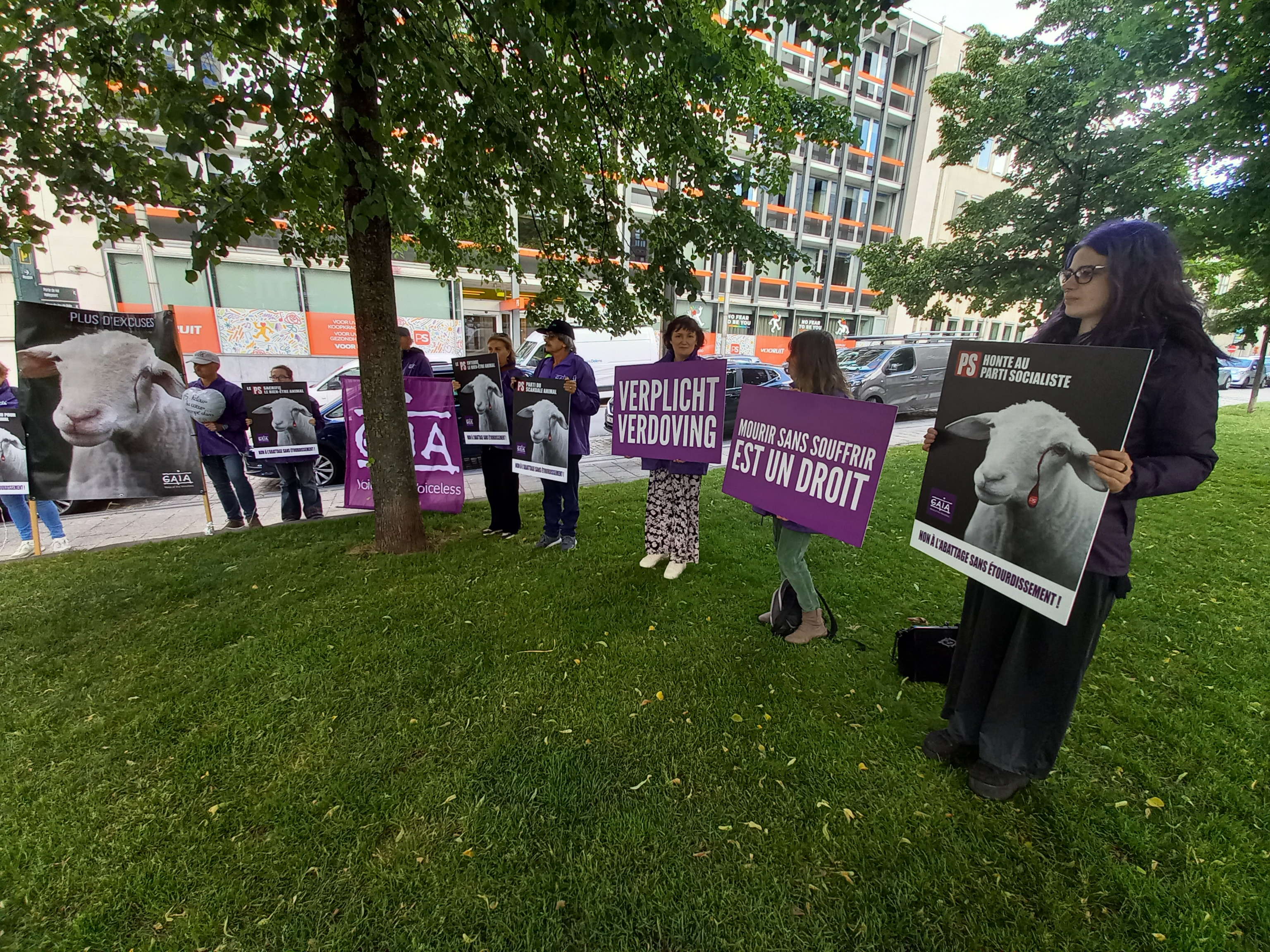Flanders and Wallonia banned ritual animal slaughter without stunning, Brussels persists

A ban on ritual slaughter without stunning the animal beforehand failed to find a majority in the Environment Committee of the Brussels Parliament. The proposal, drafted by the Brussels DéFI, Greens (Groen), and Open VLD parties, was rejected by the committee after finding opposition among the Socialist Party (PS) and the Ecologists (Ecolo).
Ritual slaughter is common in Muslim and Jewish communities of the Belgian capital, including for the preparation of food (Halal and Kosher). In both faiths, animals are slaughtered with specially sharpened knives. In the Muslim faith, animals are also sacrificed during the Islamic month of Dhul Hijjah.
Religious groups claim that both Kosher and Halal slaughter, when performed correctly, can cause less pain and suffering to animals than industrial slaughter. Some animal rights groups, however, argue that the practice causes unnecessary suffering to animals.
Different law in Belgian regions
In both Wallonia and Flanders, religious slaughter without prior stunning is banned by law; only in Brussels is the practice still permitted. Those against the proposal in the Brussels parliament stated that a ban would “discriminate against (the Muslim and Jewish) communities.”
The Socialist Party (PS) found the reasons for the ban to be unsatisfactory: “The debate remains fragmented and discriminatory… No method of slaughter can guarantee the absence of suffering,” said Leila Agic, an MP for the PS party.
The Ecolo party argued that the bill “stigmatises the religious communities concerned.” Members of the Movement Réformateur stated that religious slaughter can reduce animal suffering.
(VIV)
#FlandersNewsService
© BELGA PHOTO (JEAN VAN DRIESSCHE) Animal welfare organisation Gaia holds a protest against unsedated slaughter at the PS headquarters in Brussels